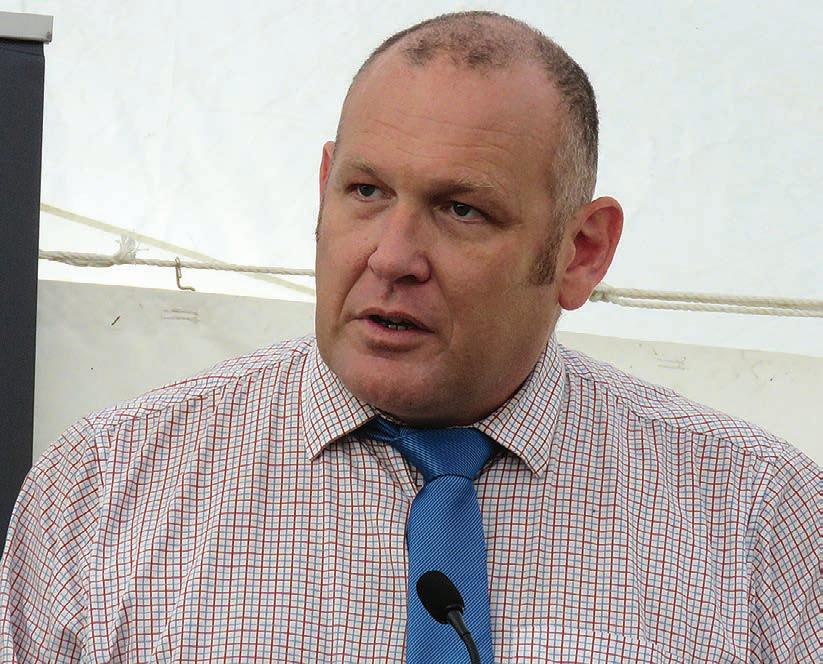
9 minute read
NZ at odds with EU over quotas
NZ stands its ground over EU quota offer
Nigel Stirling nigel.g.stirling@gmail.com
NEW ZEALAND is not backing down from its fight with the European Union over its carving up of import quotas despite other countries with similar complaints rushing to cut deals with the bloc.
At the start of this year the EU and the United Kingdom reapportioned import quotas which give other countries preferential access to their markets for agricultural goods.
NZ has opposed the changes since the EU and the UK first came up with the proposal in 2017 to split the quotas based on trade flows to their respective markets during the previous three years.
NZ trade officials led a chorus of criticism of the quota-splitting proposal at the World Trade Organisation (WTO) in November last year.
NZ’s comments were endorsed by Russia, the United States, Canada, India, Australia, Mexico, Paraguay and Uruguay, who all agreed splitting the quotas in the manner proposed by the EU and the UK undermined existing market access.
The countries also claimed the EU and the UK had failed to consult with them properly about the changes.
But in a tweet on December 29, a top official at the European Commission in Brussels claimed the EU had reached agreement with a number of the countries previously opposed to the splitting of the quotas.
The Commission’s DirectorateGeneral for Agriculture and Rural Affairs director of international affairs/trade negotiations John Clarke said the EU had cut deals with Australia, Canada, Egypt, Thailand and Indonesia, and more were expected in the first part of 2021.
The US is understood to be among those next in line for a deal with the EU.
A spokesperson for the WTO said agreements between the EU and individual countries would remain confidential until the bloc was nearing completion of quota negotiations with all countries affected by the changes.
NZ is still negotiating with the EU and the UK to restore market access equivalent to what exporters enjoyed before the January 1 quota split.
For meat exporters that would mean again being able to export up to 228,000 tonnes of sheepmeat to either the UK or the remaining 27 members of the EU without incurring a cent in tariffs.
As a result of the change by the EU and the UK, they can only export up to 114,000 tonnes to either market before high tariffs kick in.
Exporters say curtailing the maximum amounts they can export to either market free of tariffs has reduced the flexibility they previously enjoyed across the two markets.
While the surge in demand from China has meant utilisation of sheepmeat quota has been low in recent years, exporters are reluctant to give up quota volumes which they fought hard for in previous negotiations and are legally entitled to retain.
The industry says while it is not using all of the quota now, that might not remain the case if trade with China falls off for some reason in the future.
NZ Meat Board’s Dave Harrison says quota talks with the EU and the UK continued to be hardgoing with no conclusion yet in sight.
The EU had offered to amend the 2015-17 reference period which determined the quota split, but had so far refused to agree to any other changes to the methodology underpinning it.
“If you used different years you might end up with a larger EU quota versus a UK quota or something along those lines,” Harrison said.
“But it still doesn’t provide you with what you have lost – it just makes it less worse.”
Harrison says it was disappointing others had capitulated.
“The more voices you have, the more traction you will have,” he said.
“So, if the EU is picking off those countries it does make it difficult for us, but we still have to stick to our guns.”
Harrison says NZ could have to go-it-alone at the WTO if it was not able to resolve the matter through negotiations with the EU and the UK.
NZ has won cases on its own before, including against the US and the EU on sheepmeat and butter access respectively.
Dave Harrison NZ Meat Board
ONGOING: NZ Meat Board’s Dave Harrison says quota talks with the EU and the UK continued to be hard-going with no conclusion yet in sight.
Ministers yet to receive low slope maps review
Neal Wallace neal.wallace@globalhq.co.nz
NEARLY 300 landowners have contacted the Ministry for the Environment (MfE) to highlight discrepancies in its online land slope map.
A Ministry spokesperson says 289 people have notified officials that the low slope maps were inaccurate with two-thirds saying they have some high-slope land within their land parcel that has been categorised as low-slope.
The maps are available on the MfE website and are designed to show landowners areas with an average slope less than or equal to 10 degrees which, under legislation introduced last year, require cattle and deer to be excluded from waterways.
It has been contentious as many farmers say the online maps do not reflect reality, prompting the Ministry to call for examples of discrepancies.
The spokesperson says it has received responses and information from every region but particularly from Wellington, Wairarapa, Manawatu, and Southland and Otago.
The review of the online maps is progressing and involves engagement between MfE and the Ministry for Primary Industries (MPI) officials, primary sector bodies and regional council staff.
“We have not yet provided advice to ministers on options to address the issues made and will do so when our review is complete,” the spokesperson said.
“Any changes will happen only after the ministers have received and considered the advice provided.”
Want to talk? Connect to supports that can help you right now:
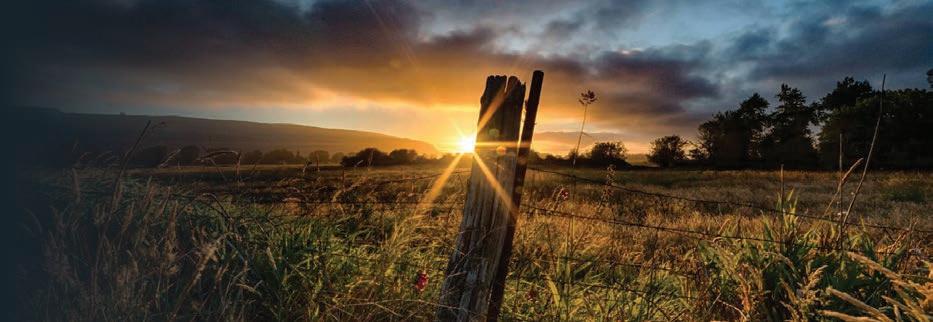
1737 Need to Talk? Is a mental health helpline number that provides access to trained counsellors who can offer support to anyone who needs to talk about mental health or addiction issues. It is free to call or text at any time. Youthline www.youthline.co.nz offers support to young people and their families, including online resources about a wide range of issues that affect young people. It can be contacted by calling 0800 376 633, texting 234, email (talk@youthline.co.nz) or online chat. Domestic violence and advice & support, call Women’s Refuge Crisis line 0800 733 843.
Alcohol and drug helpline 0800 787 797.
What’s up www.whatsup.co.nz offers counselling to 5 to 18 year olds by freephone 0800 942 8787 (1pm-10pm Monday - Friday, 3pm-10pm weekends) or online chat. Mental health information and advice for children, teenagers and families is available on its website. The Lowdown www.thelowdown.co.nz is a website and helpline for young people to help them recognise and understand depression or anxiety. It also has a 24/7 helpline that can be contacted by calling freephone 0800 111 757 or
texting 5626.
Northland dry months adding up
Hugh Stringleman hugh.stringleman@globalhq.co.nz
NORTHLAND farmers and orchardists are anxiously awaiting any break in hot, dry weather that may come down from the southwestern Pacific Ocean.
This summer several predictions of rain events from either the south or the north have bypassed the province without significant rainfall.
NIWA says the soil moisture deficit for every location in Northland is 100mm or drier.
While not as severe or widespread as late January in 2020, the deficits show that recent dry months have compounded the effects of last year’s drought and not provided any meaningful recovery.
Federated Farmers Northland president John Blackwell says his province was the driest in the country and this was not unusual for this time of year.
“Both coasts of the province are very dry and there have been some localised heavy rainfalls in the centre,” Blackwell said.
“Because this is not a nationwide drought, there are acceptable prices available further south for livestock that must be moved or sold.
“We were able to make silage in spring and we have carried a lot of feed through until now.”
Maize crops are looking good at this stage and should provide reasonable yields for dairy farmers.
Coastal farmer Greta Harman, at Whananaki Charolais just north of Whangarei, says conditions were not yet as bad as last summer but February was yet to come, being the worst month for lack of rain and grass growth.
Feeding out of cattle began again two weeks ago and the Harmans have bought in big bales, as well as making some themselves.
Total rainfall during January was less than 20mm.
Normal cattle numbers have been retained for both breeding and finishing.
“Our spring was short and we started feeding out in October until some November rain boosted pasture growth before Christmas,” Harman said.
“Winter is normally our best season but there was no big boost last autumn, so we have been playing catchup since.”
Northland-wide rainfall in December was 20-40% of normal and January’s figures are expected to be similar.
WeatherWatchNZ and RuralWeather meteorologist Philip Duncan says blocking high pressures have been sitting over northern New Zealand for what seems like two years, creating the rainfall deficits.
Southerly changes in weather have petered out before reaching Northland and the highs have erected a boundary fence between the tropics and Northland.
The blocking highs were in contrast to more unsettled conditions in the south with excess rain and floods in Otago and Southland.
A few places in Northland had short, heavy downpours during December and January but these were localised and sharply defined.
“Those landowners may have got their monthly rainfall in a couple of hours – it is like the tropics,” Duncan said.
Meteorological conditions over the Southern Ocean have been very dramatic for the past year and the much deeper lows may have contributed towards blocking high pressure at the northern end of the country.
Duncan said a tropical cyclone may be forming in the southwestern Pacific Ocean around Fiji with a potential to track southwards over northern NZ next week but that this stage the odds of a direct hit on us remain at 15%.
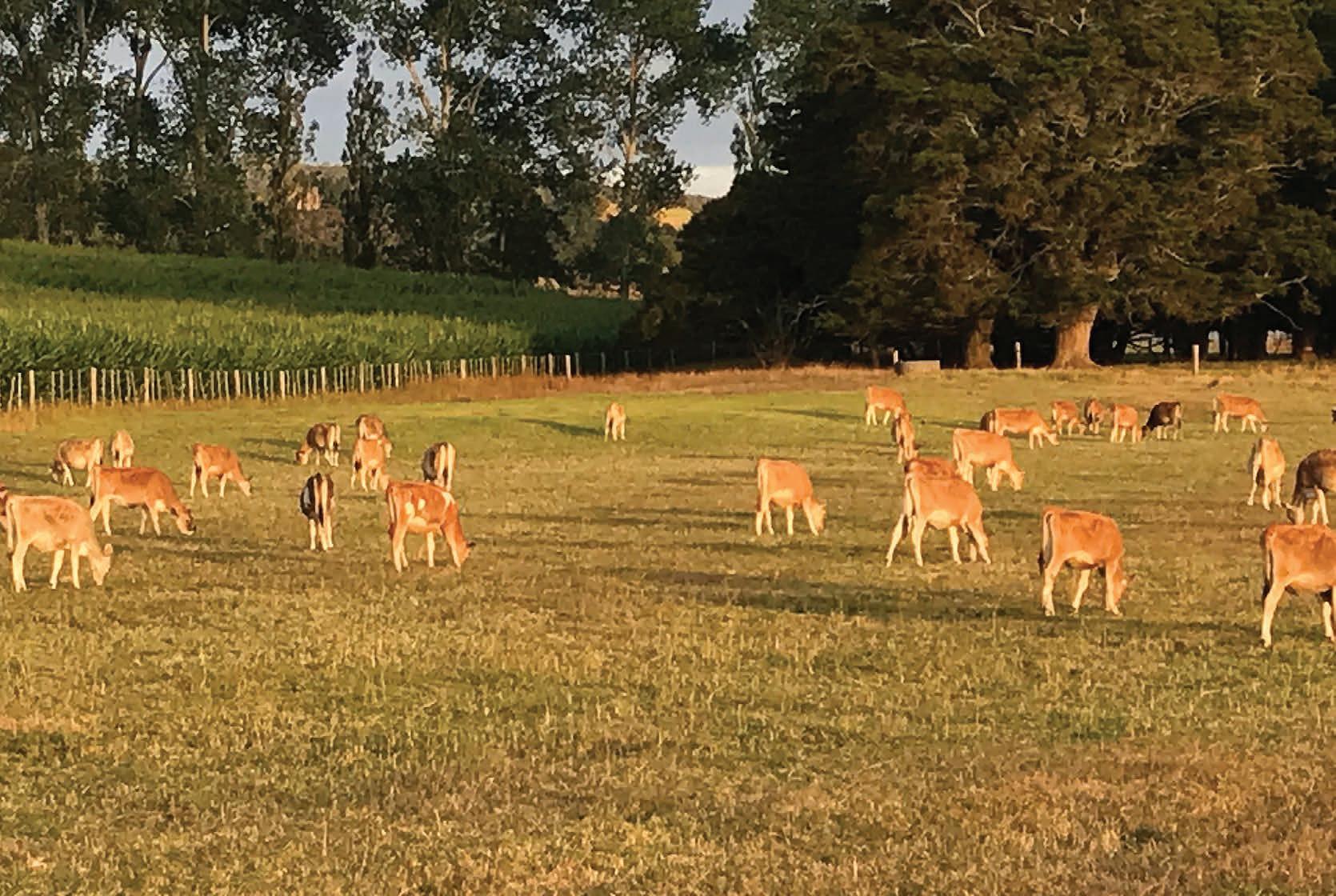
BARE BOARDS: Deficits show that recent dry months have compounded the effects of last year’s drought and not provided any meaningful recovery.
Greta Harman Farmer
Working for you this dairy season
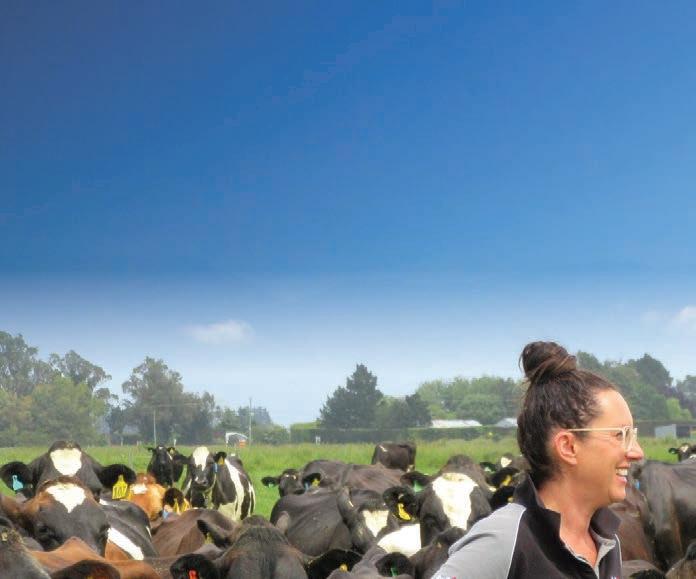

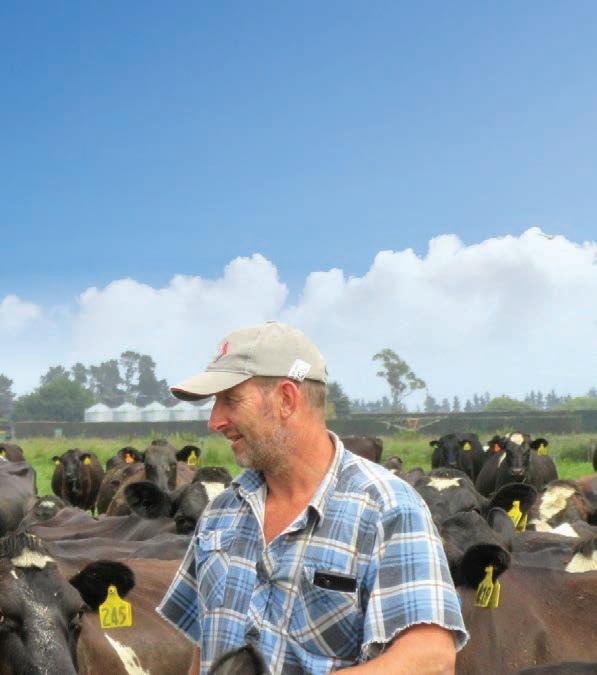

DAIRY HYGIENE MAG/LIME
CALF FEED TEAT CARE
BUY ONLINE
DISCUSS YOUR DAIRY REQUIREMENTS WITH US TODAY


